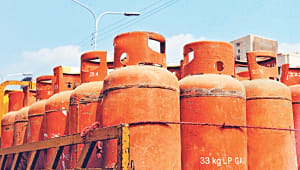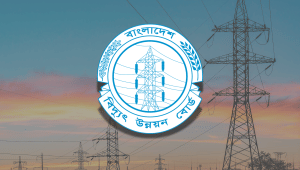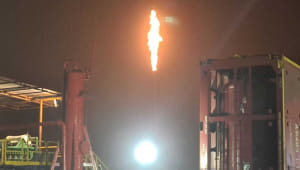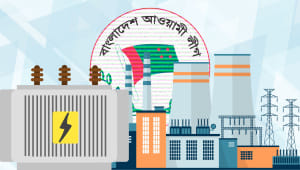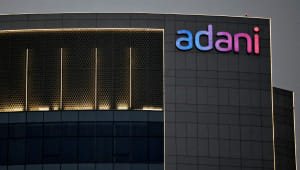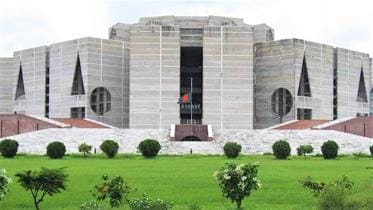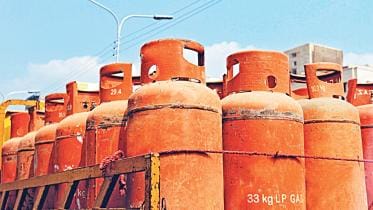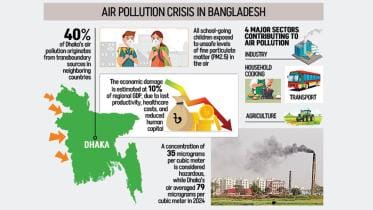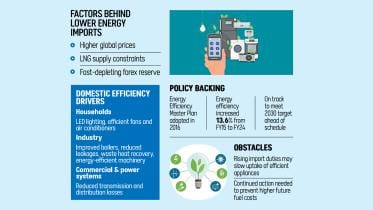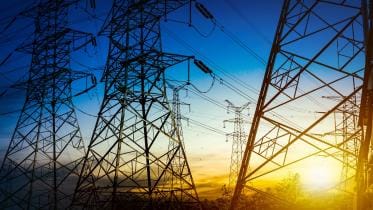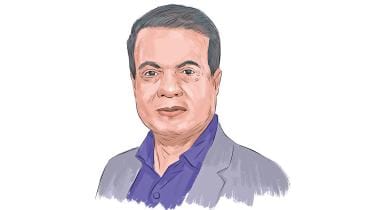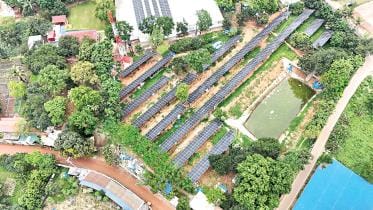Gas crisis fuels sufferings, extra costs
Dhaka residents are struggling to cook daily meals amid a worsening gas crisis affecting both pipeline supplies and bottled liquefied petroleum gas (LPG).
12 January 2026, 00:00 AM
Pipeline leak cuts gas supply to near zero in parts of Dhaka
Amid an ongoing shortage of household gas supply over the past couple of months, a leak in a pipeline un
10 January 2026, 01:51 AM
LPG supply disruption likely to continue
The liquefied petroleum gas price will continue to stay above the government-set rate at the retail level, given the instability in the supply chain.
9 January 2026, 04:00 AM
LPG prices soar on artificial scarcity
Traders call indefinite strike for higher distribution charges
7 January 2026, 18:00 PM
No women on tickets of 30 parties
Women remain largely absent from the electoral race, with 30 of the 51 political parties contesting the upcoming national election fielding no female aspirants at all, Election Commission data shows.
5 January 2026, 18:00 PM
LPG import hurdles may cause supply crunch
The current supply of liquefied petroleum gas is sufficient to meet local demand despite difficulty in importing the fuel, importers said.
4 January 2026, 18:00 PM
Supply crunch sends LPG prices soaring
Bottled liquefied petroleum gas (LPG) is now selling for 60 percent more than the government-fixed price on the back of a supply shortage caused by lower imports last month.
1 January 2026, 18:00 PM
Govt to expand Eastern Refinery with Tk 35,465cr
The government has finally approved the long-pending modernisation and expansion project of Eastern Refinery Limited (ERL), the country’s only fuel oil refinery, opting to implement it with state financing after shelving an earlier joint venture plan with S Alam Group.
23 December 2025, 18:00 PM
Bangladesh tops South Asia in air pollution
A new World Bank report has ranked Bangladesh as South Asia’s worst-hit country by air pollution, with 100 percent of schoolchildren in Dhaka and nearby areas exposed to unsafe levels of fine particulate matter (PM2.5).
18 December 2025, 18:00 PM
Energy efficiency saved $3.3b in FY24
Households and industries adopting LED lighting, efficient furnaces, waste-heat recovery contributed
17 December 2025, 18:33 PM
Politicians, officials used DSA to settle ‘personal disputes’
The Digital Security Act (DSA) was widely used by politicians and government officials to settle personal disputes with journalists and to harass and intimidate them, according to a new study on the law.
24 November 2025, 22:16 PM
Bangladesh to be 2nd-largest LNG importer in South Asia by 2035: IEA
Bangladesh’s faster regasification expansion and declining domestic gas fields to drive higher imports
12 November 2025, 16:20 PM
Most power deals tied to nexus of companies, govt high-ups: report
Most of the power sector deals were signed by a nexus of private entities, government higher-ups and bureaucrats during the Awami League regime, found the national committee formed to review the power sector contracts.
2 November 2025, 18:06 PM
JEC meeting: Dhaka, Islamabad discuss trade, connectivity
Bangladesh and Pakistan yesterday agreed to expand economic cooperation by exploring new trade opportunities and enhancing direct connectivity through shipping links and air services.
27 October 2025, 21:17 PM
Tk 4,000cr gas lost in FY25
Enough gas to keep 30 lakh kitchen burners alight for an entire year went up in smoke as system losses in fiscal year 2024-25.
23 October 2025, 19:36 PM
Govt to ease labour union requirement
The government is planning to relax key labour law requirements, significantly lowering the entry barrier for a trade union in any establishment.
23 October 2025, 18:12 PM
Cronyism dominated power sector under Awami League
Bangladesh’s power sector was long dominated by political influence, muscle power, and artificial crises designed to benefit a handful of companies during the deposed Awami League regime, said KM Rezaul Hasanat David, president of the Bangladesh Independent Power Producers’ Association (BIPPA).
18 October 2025, 18:47 PM
Private firms can now sell renewable power directly to customers
New policy removes state-run Power Development Board (PDB) as the sole buyer and seller from the process
13 October 2025, 18:00 PM
Gas supply declining despite higher LNG imports
The country’s overall gas supply dropped further last fiscal year, despite higher LNG imports, due to a continued decline in domestic production.
10 October 2025, 18:26 PM
Most fertiliser plants starved of gas
The govt needs to import as much as 50 percent of the country's annual urea demand
6 October 2025, 18:10 PM




